第12章
If it is thus, then, that every art does its work well- by looking to the intermediate and judgling its works by this standard (so that we often say of good works of art that it is not possible either to take away or to add anything, implying that excess and defect destroy the goodness of works of art, while the mean preserves it; and good artists, as we say, look to this in their work), and if, further, virtue is more exact and better than any art, as nature also is, then virtue must have the quality of aiming at the intermediate. Imean moral virtue; for it is this that is concerned with passions and actions, and in these there is excess, defect, and the intermediate. For instance, both fear and confidence and appetite and anger and pity and in general pleasure and pain may be felt both too much and too little, and in both cases not well; but to feel them at the right times, with reference to the right objects, towards the right people, with the right motive, and in the right way, is what is both intermediate and best, and this is characteristic of virtue. Similarly with regard to actions also there is excess, defect, and the intermediate. Now virtue is concerned with passions and actions, in which excess is a form of failure, and so is defect, while the intermediate is praised and is a form of success; and being praised and being successful are both characteristics of virtue.
Therefore virtue is a kind of mean, since, as we have seen, it aims at what is intermediate.
Again, it is possible to fail in many ways (for evil belongs to the class of the unlimited, as the Pythagoreans conjectured, and good to that of the limited), while to succeed is possible only in one way (for which reason also one is easy and the other difficult- to miss the mark easy, to hit it difficult); for these reasons also, then, excess and defect are characteristic of vice, and the mean of virtue;For men are good in but one way, but bad in many.
Virtue, then, is a state of character concerned with choice, lying in a mean, i.e. the mean relative to us, this being determined by a rational principle, and by that principle by which the man of practical wisdom would determine it. Now it is a mean between two vices, that which depends on excess and that which depends on defect; and again it is a mean because the vices respectively fall short of or exceed what is right in both passions and actions, while virtue both finds and chooses that which is intermediate. Hence in respect of its substance and the definition which states its essence virtue is a mean, with regard to what is best and right an extreme.
But not every action nor every passion admits of a mean; for some have names that already imply badness, e.g. spite, shamelessness, envy, and in the case of actions adultery, theft, murder; for all of these and suchlike things imply by their names that they are themselves bad, and not the excesses or deficiencies of them. It is not possible, then, ever to be right with regard to them; one must always be wrong. Nor does goodness or badness with regard to such things depend on committing adultery with the right woman, at the right time, and in the right way, but simply to do any of them is to go wrong. It would be equally absurd, then, to expect that in unjust, cowardly, and voluptuous action there should be a mean, an excess, and a deficiency; for at that rate there would be a mean of excess and of deficiency, an excess of excess, and a deficiency of deficiency. But as there is no excess and deficiency of temperance and courage because what is intermediate is in a sense an extreme, so too of the actions we have mentioned there is no mean nor any excess and deficiency, but however they are done they are wrong; for in general there is neither a mean of excess and deficiency, nor excess and deficiency of a mean.
7
We must, however, not only make this general statement, but also apply it to the individual facts. For among statements about conduct those which are general apply more widely, but those which are particular are more genuine, since conduct has to do with individual cases, and our statements must harmonize with the facts in these cases. We may take these cases from our table. With regard to feelings of fear and confidence courage is the mean; of the people who exceed, he who exceeds in fearlessness has no name (many of the states have no name), while the man who exceeds in confidence is rash, and he who exceeds in fear and falls short in confidence is a coward. With regard to pleasures and pains- not all of them, and not so much with regard to the pains- the mean is temperance, the excess self-indulgence. Persons deficient with regard to the pleasures are not often found; hence such persons also have received no name. But let us call them 'insensible'.